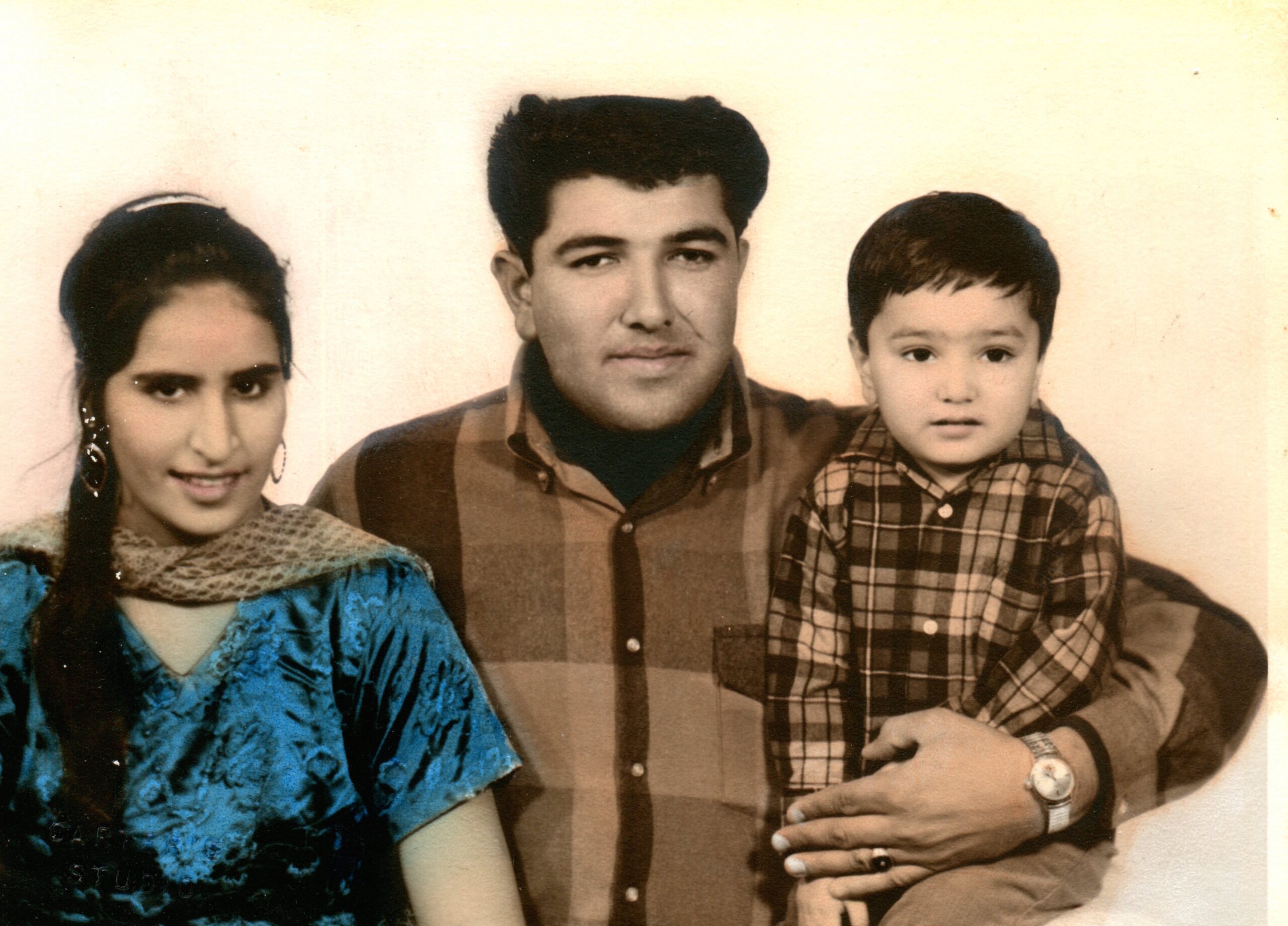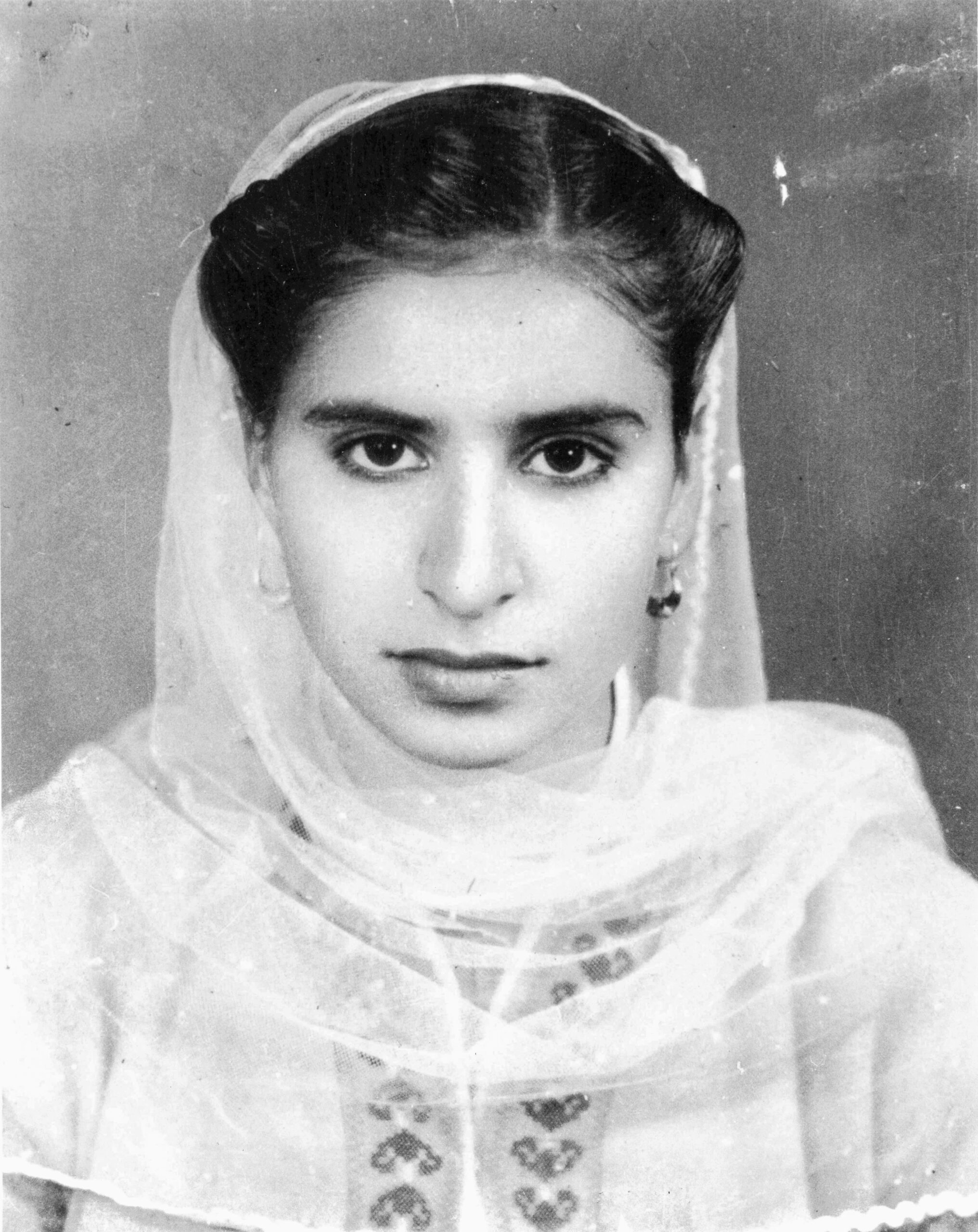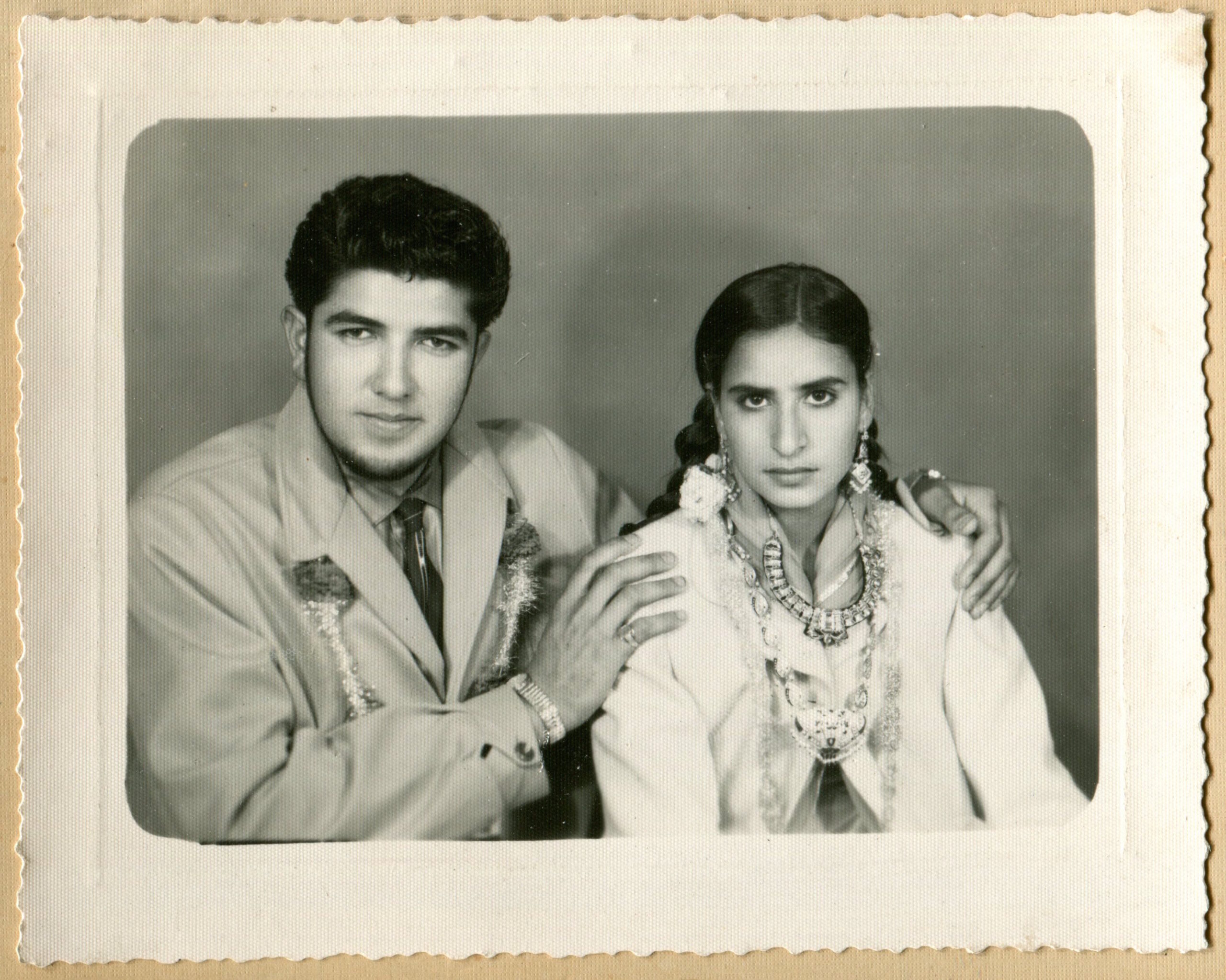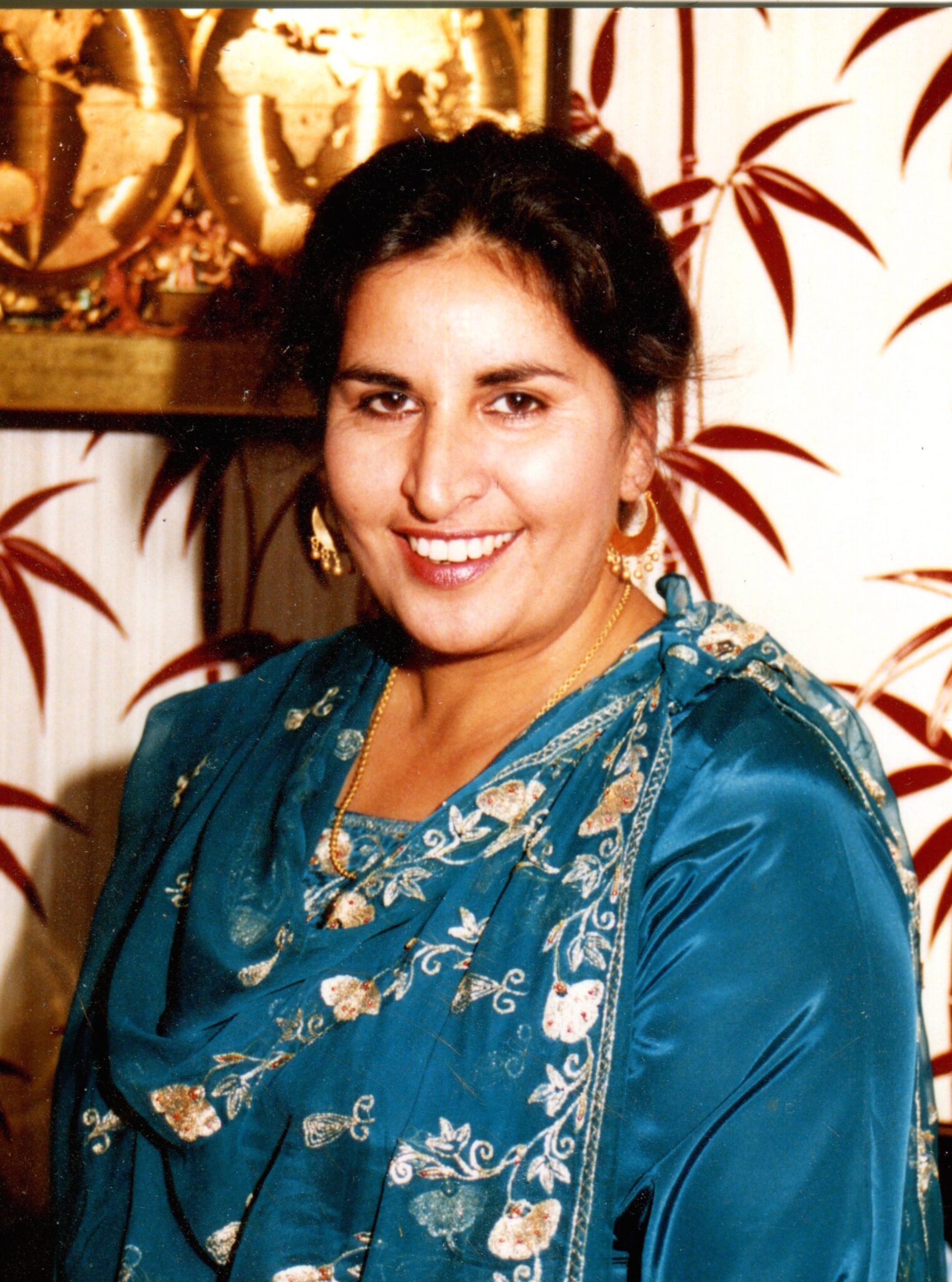Manjit Kaur Janda
Manjit Kaur Janda (born on December 17, 1947) was born in a village in Jalandhar, Punjab, and settled in the Yuba City area, arriving in the US on November 17, 1963. She represents the unique experiences of young Punjabi brides who entered Punjabi-Mexican American families in the decades after the Second World War.

I am the oldest of my siblings. My mom told me, ‘When you were born, our family was very happy.’ They were so happy. There was a shrine in my village where people went when they had sons, but my paternal aunt and my mom took me too. People used to be shocked, saying, ‘You can’t do this. It’s for sons.’ My mom and aunt said, ‘No, for us she is everything, so we are going to do it.’

Manjit Kaur Janda, Punjab, India, c 1963.
Manjit remembers her youth in Punjab, especially the family stories about their joy when she was born. Generally the birth of a girl was not welcomed by families in rural Punjab. In patrilocal families, a daughter’s birth brought financial hardship due to the custom of paying for her wedding. By contrast, Manjit’s birth was celebrated by her family:
At the age of sixteen, her parents arranged a marriage to an older Punjabi-Mexican American man who was visiting Punjab from California. “I was too young to appreciate my wedding day,” she recalls. “I had no appreciation for what was happening to me in my brain or my heart.” She vividly recalled her wedding day:
I remember my mom and aunt woke me up at 4 am, bathed me, and put nice clothing on me. They were telling me what to do and how to do it.
I couldn’t understand what was happening to me. It seemed as if I was playing a role in a play, as if someone kept giving me directions
and I was just following along.
Manjit had completed her high school education and wanted to go on to college before eventually joining the army. Her father-in-law promised to give her further education in America. However, Manjit regretfully explains, when she arrived, “it was a different story.” Her years of adjustment in the United States were extremely difficult. She experienced intense loneliness and isolation for years due to the cultural chasm between herself and her husband. Her husband spoke English and some Spanish, but she could only speak Punjabi. “We behaved like two kids from two different worlds,” she recalls. In the beginning, the only person in the home Manjit could communicate with was her father-in-law because they could both speak Punjabi. “It was a hard life… It was very lonely,” she recalls. She would think to herself, ‘Now I am here and I am stuck.’ Gradually, she and her husband felt comfortable with each other, especially after she learned English.
She found solace in the company of other Punjabi women on the rare occasions when her father-in-law allowed her to venture outside the home.

Joe and Manjit Janda, Gridley, CA, c 1963.
When I saw another Punjabi woman, I connected with her. I would think, ‘That’s my Punjabi sister.’
I felt the same love for Punjabi women here as I felt for my family. I trusted them and could tell them my true feelings.
In those times, there was a lot of love between the families.
Her father eventually relented to his daughter-in-law’s wish to work outside the home. She was encouraged by a few other Punjabi ladies who said, “Let’s go work in the cannery!”
Today she greatly enjoys working in a school office helping children with their schoolwork and other office tasks. “I really like going there. I go in the morning, and my four hours pass very nicely.” She lives in the small town of Gridley just north of Yuba City. She feels satisfied with her new life, adding: “This is like heaven. I thank God we are here.”
Manjit and her husband raised two sons: Harjit and Harcharanjit.
Photos courtesy of Manjit Kaur Janda.
Source: Interview with Manjit Kaur Janda by Nicole Ranganath and Davinder Deol, Yuba City, December 17, 2017.

